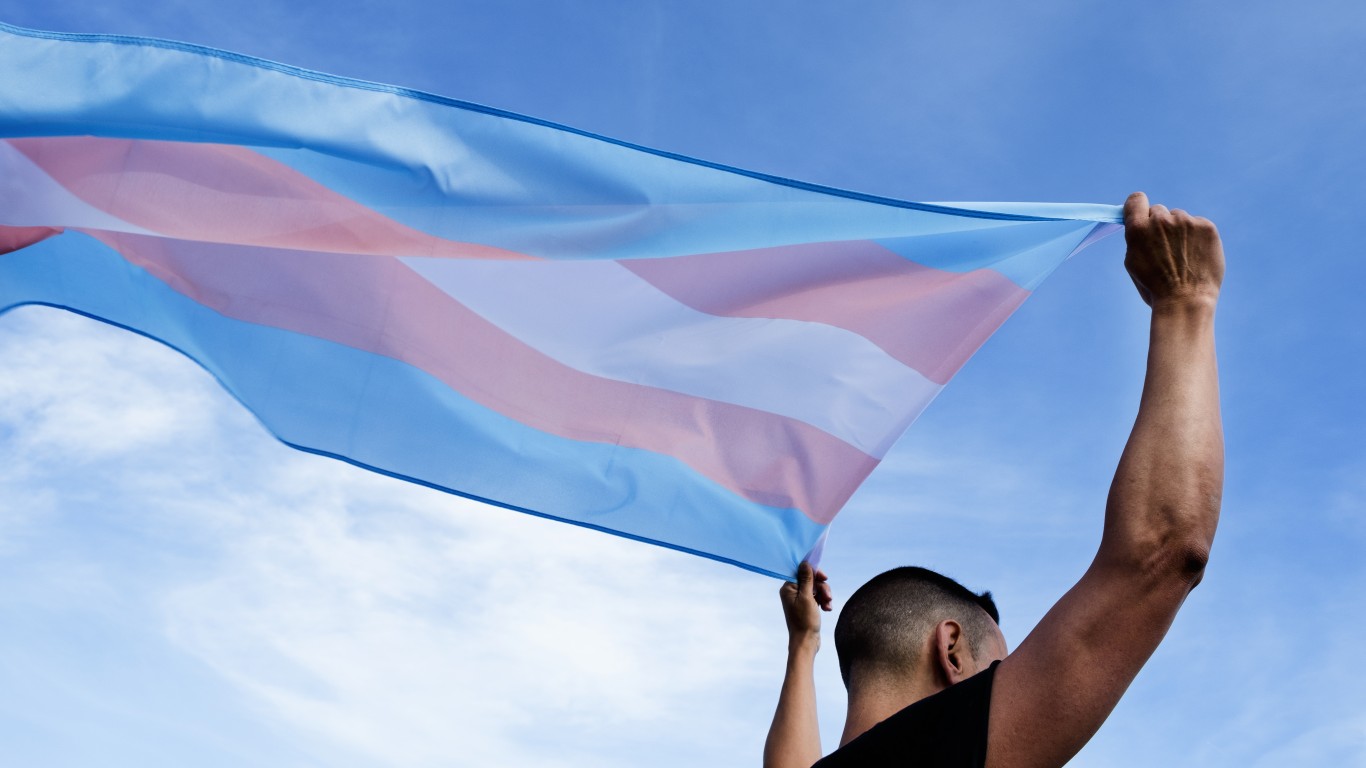

State lawmakers in much of the country are working to restrict the rights of residents based on their gender identity and sexual orientation. According to a recent report from a national gay rights advocacy group, new laws that discriminate against those in the LGBTQ community have been passed in 13 states this year – a number that could grow, as many state legislatures have yet to convene. (These are the states with the most hate groups.)
These new laws generally target school-aged children, and while some are being challenged in court – including at least one that has been singled out by the U.S. Department of Justice – many have already gone into effect, or will imminently.
Using information compiled by the Human Rights Campaign, an LGBTQ advocacy group, 24/7 Wall St. identified the most anti-LGBTQ states in 2022. Each of the states on this list have enacted laws this year that are widely perceived as being restrictive to the rights of LGBTQ residents. (These are states with little or no protection for LGBTQ people.)
In most of the states on this list, the laws in question restrict the rights of students who identify as transgender to participate in school sports. Arguments for and against such restrictive laws follow a similar pattern from state to state, with proponents claiming that transgender girls have an athletic advantage and detractors pointing to the cruelty of denying student athletes the ability to participate in sports and missing out on the benefits of athletic competition.
Other laws go even further, reaching into classrooms and doctor-patient relationships.
Click here to see the 13 states denying rights to the transgendered
All the states on this list but one are headed by conservative Republican governors – though it is important to note that several governors on this list have vetoed these controversial laws, only to have their decision overridden in the legislature. Here is a look at the most – and least – popular governors.
1. Alabama
> Governor: Kay Ivey (R)
In April 2022, Alabama Gov. Kay Ivey signed the controversial Senate Bill 184. Provisions in the new law make it illegal for health care workers to provide gender-affirming medical treatment to transgender youth under the age of nine. These laws carry a maximum penalty of 10 years in prison and a $15,000 fine for violators and are the first in the nation to come with a felony charge.
According to the HRC, the new laws violate best practices outlined by the American Academy of Pediatrics and also take away the rights of parents to make decisions about what’s best for their children, in consultation with their primary care provider. In response, the U.S. Department of Justice is challenging the legislation on the grounds that it can deny some children necessary medical care, a violation of the Fourteenth Amendment’s Equal Protection Clause, and is discriminatory against transgender youth.
[in-text-ad]
2. Arizona
> Governor: Doug Ducey (R)
Arizona Gov. Doug Ducey signed Senate Bill 1399 into law on April 6, 2022. The new law will allow tax-payer funded child welfare agencies to refuse services such as adoption, foster care, and family reunification on religious grounds – which can open the door for descrimination against same-sex and LGBTQ families.
The new law comes on the heels of two other bills Gov. Ducey has signed this year seen as anti-LGBTQ, as they prevent transgender youth from receiving certain health care that may be medically necessary and restrict transgender youth from playing sports in a way that aligns with their gender identity.
3. Florida
> Governor: Ron DeSantis (R)
Perhaps the highest profile 2022 legislation that is viewed by many as anti-LGBTQ was signed into law in March by Florida Gov. Ron DeSantis. The new law, derided by as the “Don’t Say Gay” bill, prohibits instruction on sexual orientation and gender identity from kindergarten through third grade.
Critics of the controversial law argue that it marginalizes those in the LGBTQ community and creates a stifled classroom environment where teachers may fear legal repercussions should certain discussions arise. The bill’s proponents, including Gov. DeSantis, say that it is the role of parents, not of schools, to discuss these issues with their children.

4. Georgia
> Governor: Brian Kemp (R)
On April 28, 2022, Gov. Brian Kemp of Georgia signed House Bill 1084 into law, creating an athletic committee that would have the authority to ban transgender youth from playing sports in a way that aligns with their gender identity. In early May, the Georgia High School Association took that very action.
When Gov. Kemp signed the bill, he cited his opposition to “woke politics,” and opened himself to criticism that he, along with many other governors on this list, are feeding into a culture war purely for political gain.
[in-text-ad-2]

5. Indiana
> Governor: Eric Holcomb (R)
Indiana is one of several states to pass a law this year that prohibits transgender youth from playing sports in a way that aligns with their gender identity. Unlike some of the other states, however, in Indiana, Republican Gov. Eric Holcomb vetoed the bill when it came to his desk, stating that there was no evidence that the legislation solved an existing problem in the state.
When the bill, HB 1041, was sent back to the state legislature, however, lawmakers overrode the governor’s decision, passing the bill with a 32-15 Senate vote, and a 67-28 vote in the House.
6. Iowa
> Governor: Kim Reynolds (R)
Once considered a bastion of LGBTQ rights with protections against descrimination in education, employment, housing, and public accommodations, Iowa has changed course, and is one of 13 states to have passed legislation that can be seen as anti-LGBTQ.
Iowa Gov. Kim Reynolds signed into law this year a bill that makes it illegal for transgender women in girls to participate in sports in a way that conforms with their gender identity at the primary, secondary, college, and university school levels. Reynolds justified the law stating that transgender girls have an athletic advantage, while her critics point to the denial of the many benefits gained from participation in sports and athletic competition.
[in-text-ad]

7. Kentucky
> Governor: Andy Beshear (D)
When Senate Bill 83, known as Fairness in Women’s Sports Act passed through the Kentucky legislature to Democratic Gov. Andy Beshear’s desk, it was vetoed. Beshear rejected the bill, which mandated that student athletes participate in sports in accordance with the gender printed on their birth certificate, on the grounds that it was unneccessary and that “transgender children deserve public officials’ efforts to demonstrate that they are valued members of our communities.”
However, state lawmakers ultimately overrode the governor’s decision. State Sen. Robby Mills (R), sponsor of the bill, claimed that its passage was a “huge win for the integrity of women’s sports.”

8. Louisiana
> Governor: John Bel Edwards (D)
In April, the Louisiana Senate passed SB 44, which effectively bans transgender youth from playing sports in a way that aligns with their gender identity. The bill will become law and go into effect on Aug. 1, 2022, without the signature of Gov. John Bel Edwards.
In June of 2021, Gov. Edwards, a Democrat vetoed a similar bill on the grounds that it was discriminatory.
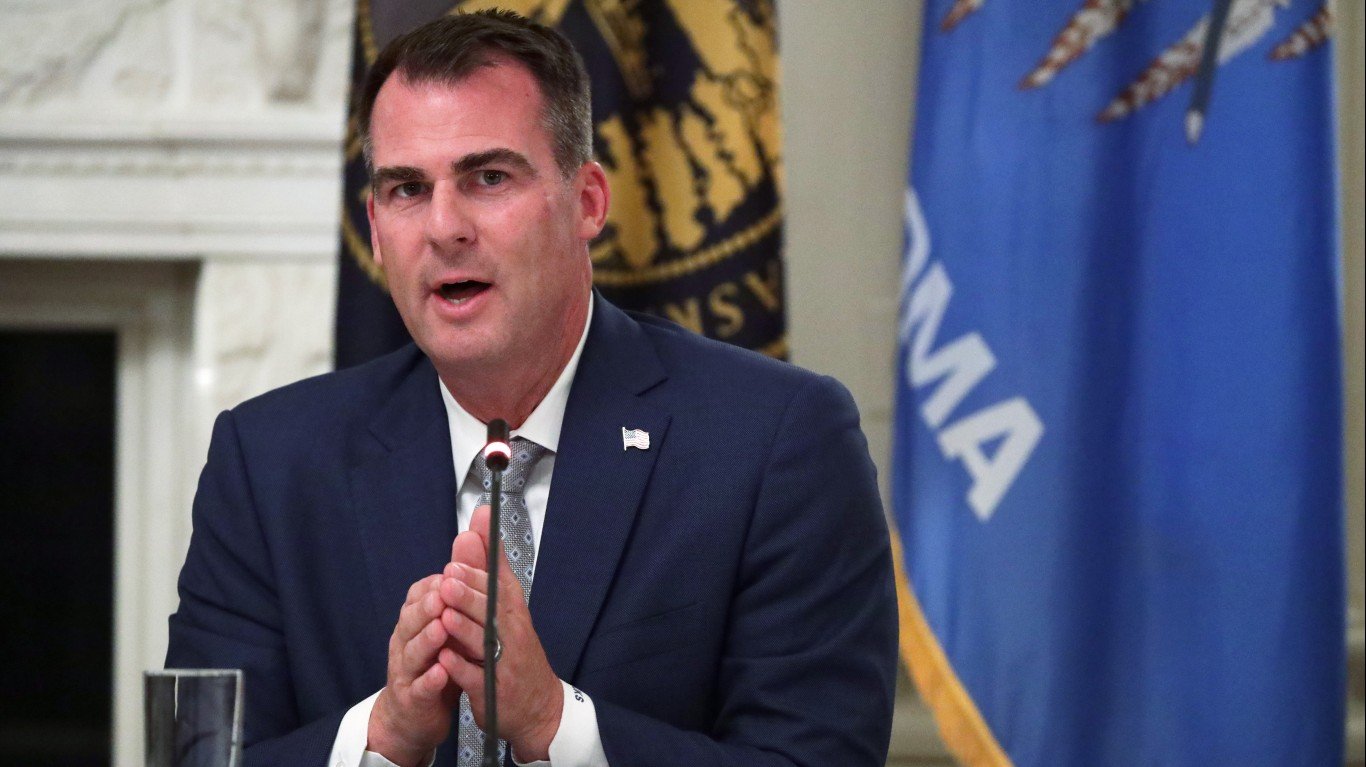
9. Oklahoma
> Governor: Kevin Stitt (R)
Oklahoma Gov. Kevin Stitt signed a bill into law on May 25, 2022 that requires public schools and charter school students in grades pre-K-12 to use bathroom and locker room facilities that align with the gender listed on their birth certificate, regardless of how they may identify. Under the new law, students who identify as trans will have to use single occupancy bathrooms and changing rooms. Schools that fail to provide these alternatives could face funding cuts in addition to lawsuits from parents.
The new controversial law is the latest from Gov. Stitt, who, earlier this year, signed laws that ban nonbinary gender markers on birth certificates and transgender women and girls from participating in sports.
[in-text-ad-2]
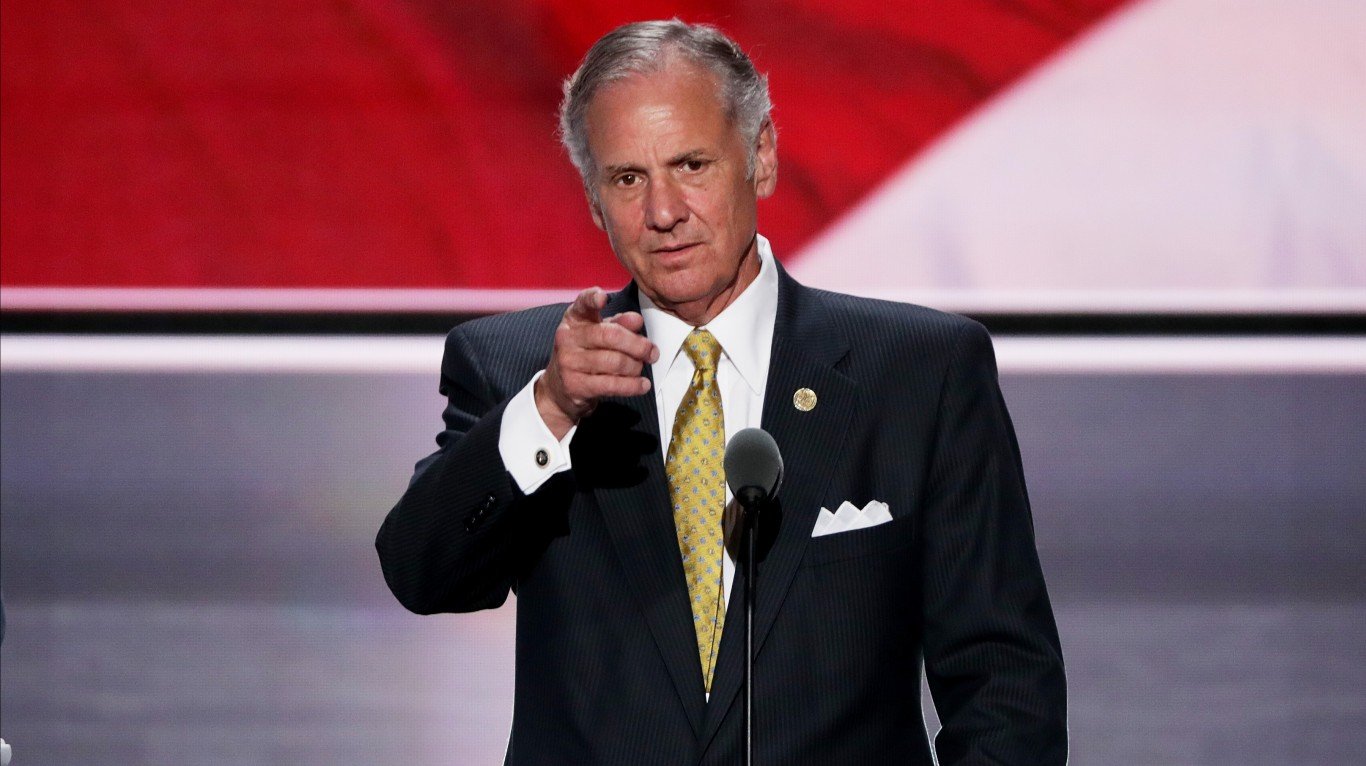
10. South Carolina
> Governor: Henry McMaster (R)
South Carolina is one of several states to pass a law this year that restricts transgender atheletes’ participation in sports. The bill, known as the Save Women’s Sports Act, was signed into law in mid-May by Gov. Henry McMaster and specifically bans transgender girls and women from female sports teams in public primary and secondary schools, as well as colleges and universities and private school teams that compete against public schools.
Debate over the bill in South Carolina resembles those taking pace in many other states – with proponents arguing that transgender girls could have an unfair biological advantage, and critics claiming that singling out transgender students and denying them the ability to participate in sports is cruel.
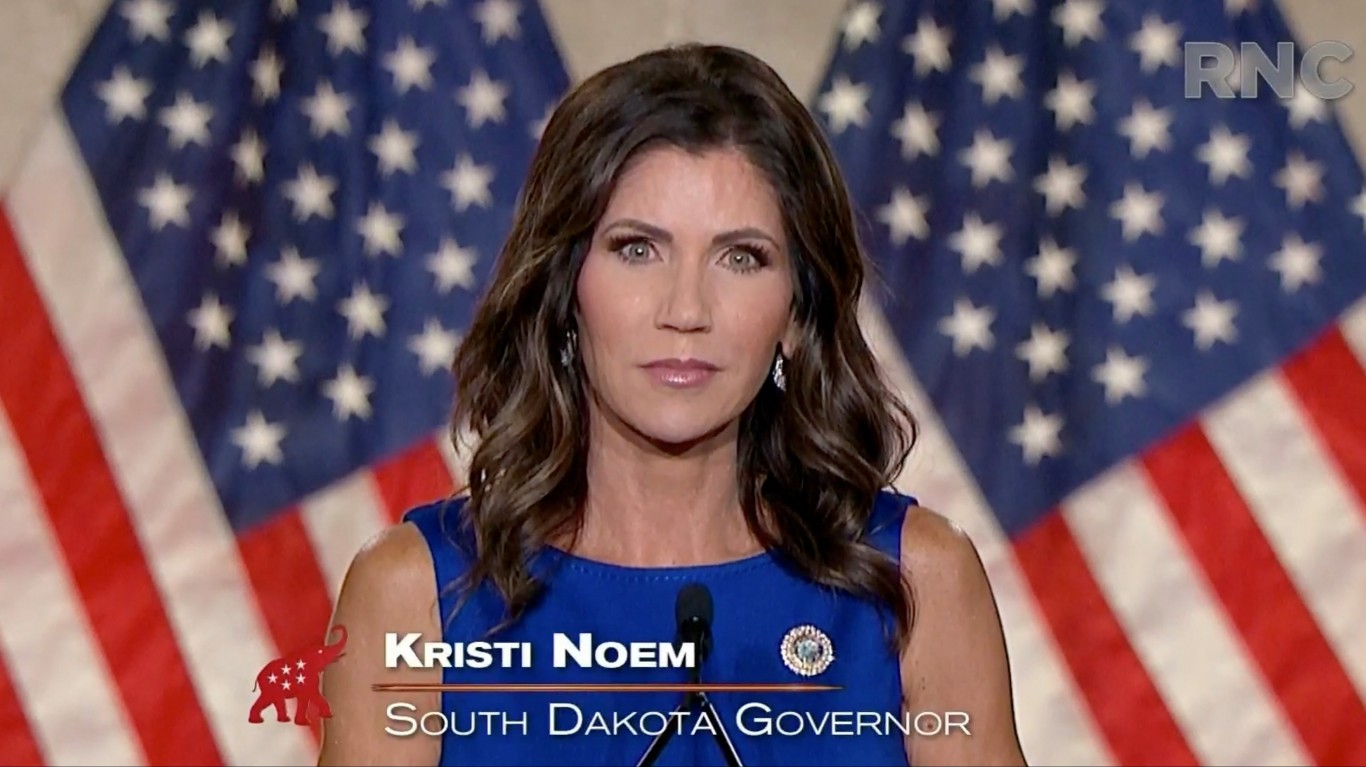
11. South Dakota
> Governor: Kristi L. Noem (R)
On Feb. 3, 2022 Gov. Kristi Noem signed Senate Bill 46 into law, making South Dakota the first state this year to enact legislation restricting the rights of LGBTQ residents. The law was the first of many to pass through state houses around the country banning transgender youth from playing sports in a way that aligns with their gender identity.
Notably, the state’s Senate Judiciary committee killed House Hill 1005, that would have banned transgender students from using school bathrooms that align with their gender identity.
[in-text-ad]

12. Tennessee
> Governor: Bill Lee (R)
This year, lawmakers in Tennessee extended a ban on transgender students participating in school sports in a way that aligns with their gender identity. Republican Gov. Bill Lee signed into law additional provisions that penalize school districts that do not determine the gender of student athletes through a birth certificate, or other comparable means, by withholding some portion of state funding.
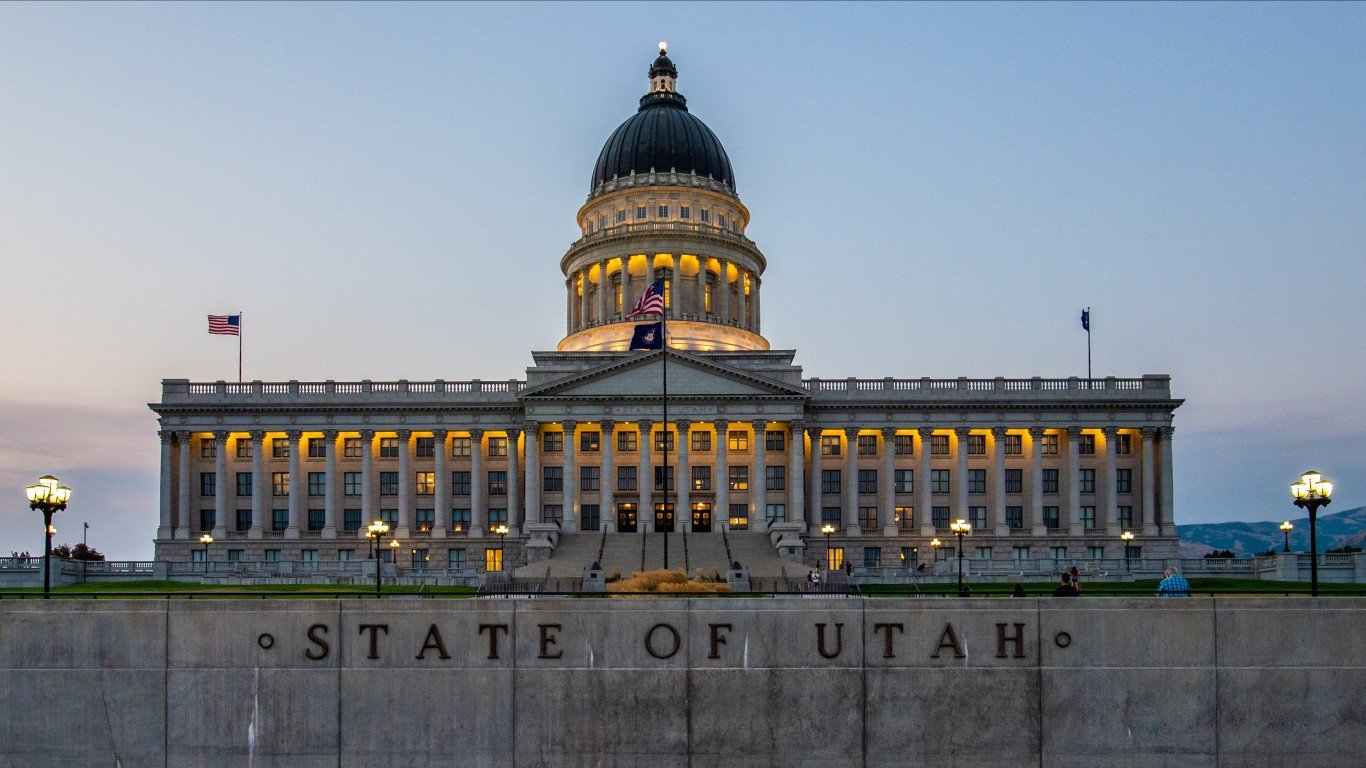
13. Utah
> Governor: Spencer Cox (R)
This year, lawmakers in Utah passed House Bill 11, which prohibits transgender girls from competing in school sports. Though the bill was vetoed by Republican Gov. Spencer Cox, the state Legislature overrode the Cox’s decision.
At least two Utah families are challenging the new law, claiming that it stands in direct violation of several provisions of the Utah Constitution.
Sponsored: Attention Savvy Investors: Speak to 3 Financial Experts – FREE
Ever wanted an extra set of eyes on an investment you’re considering? Now you can speak with up to 3 financial experts in your area for FREE. By simply
clicking here you can begin to match with financial professionals who can help guide you through the financial decisions you’re making. And the best part? The first conversation with them is free.
Click here to match with up to 3 financial pros who would be excited to help you make financial decisions.
Thank you for reading! Have some feedback for us?
Contact the 24/7 Wall St. editorial team.
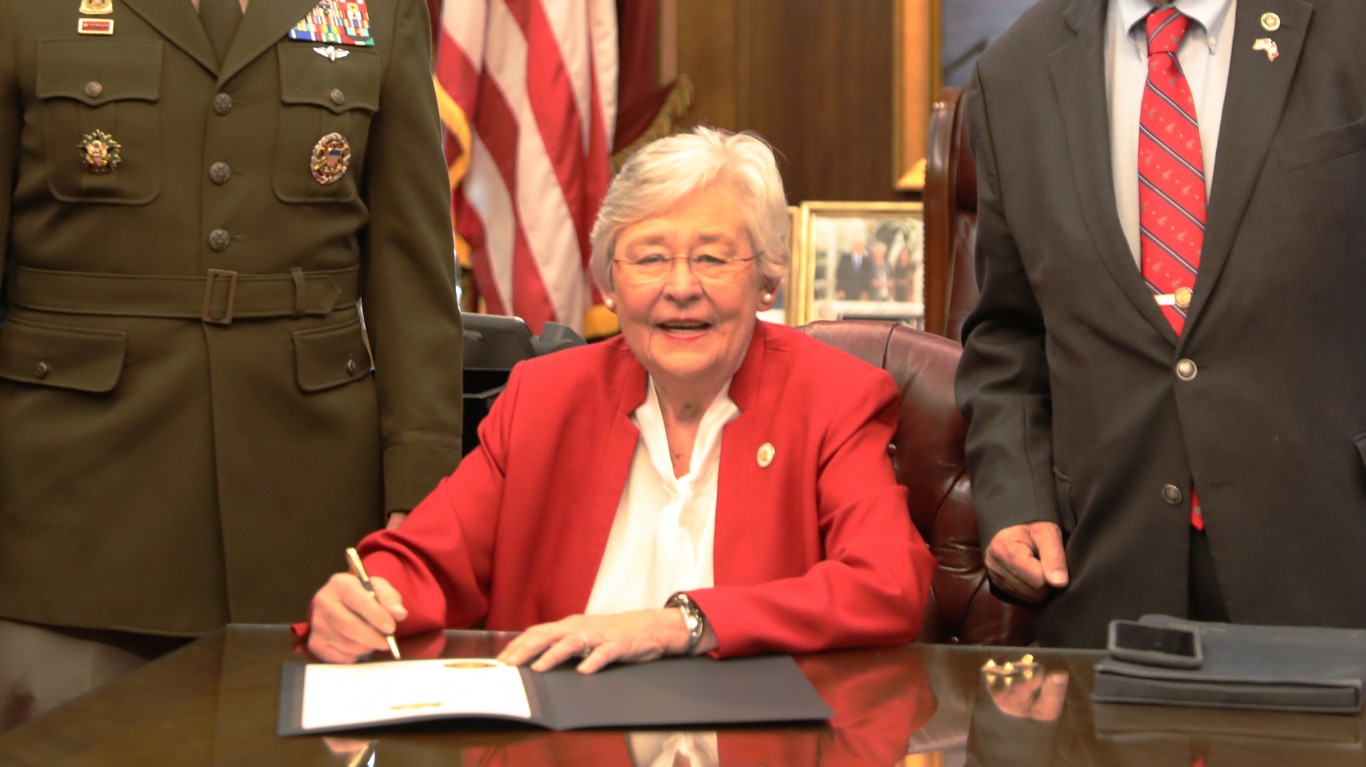
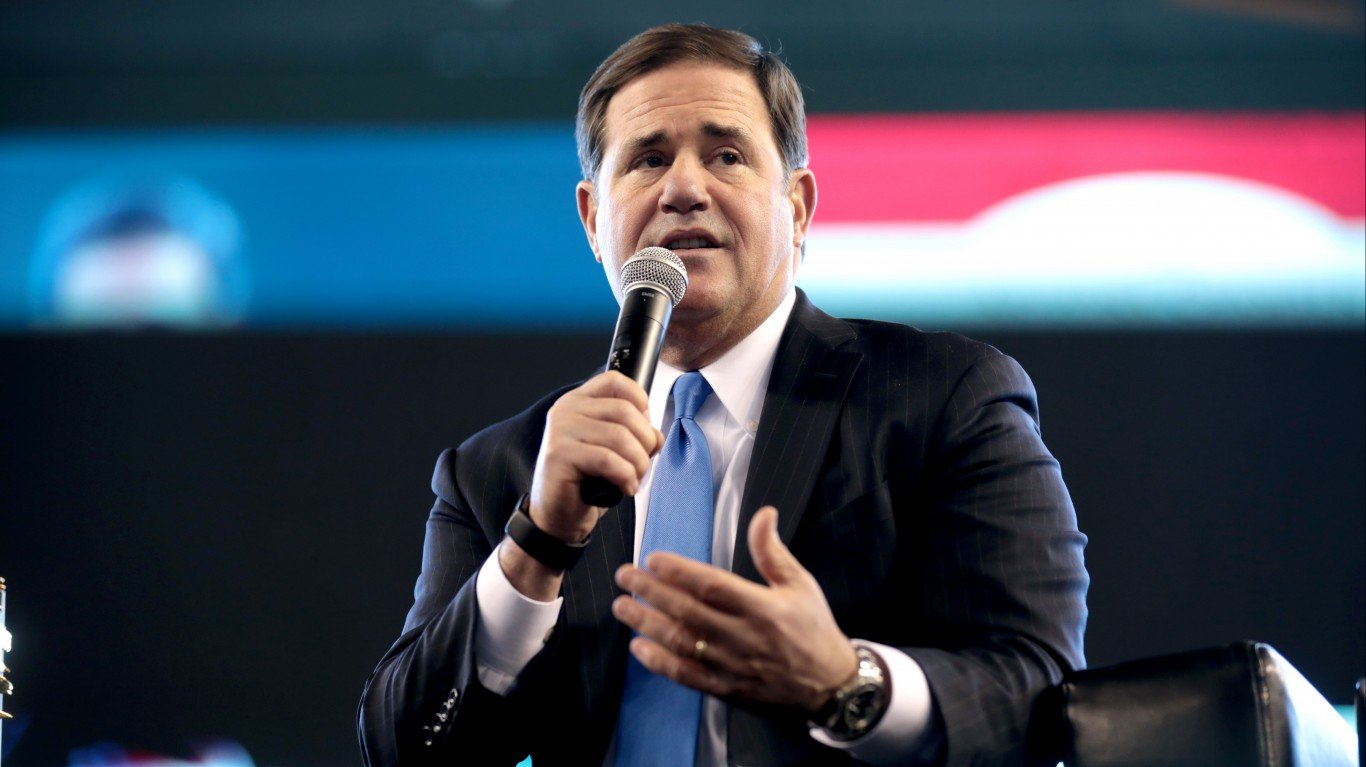


 24/7 Wall St.
24/7 Wall St. 24/7 Wall St.
24/7 Wall St.


